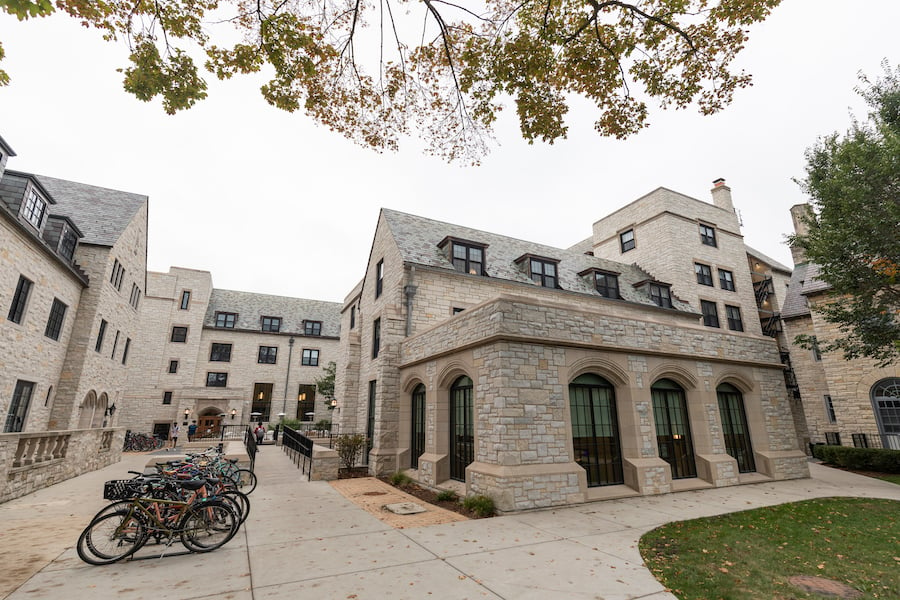Accommodating dietary restrictions while living on campus
Joshua Hoffman/Daily Senior Staffer
Willard Residential College. Some students say the efforts of Willard’s executive board to address dietary restrictions help them feel supported.
October 18, 2021
Housing assignments can often make or break students’ lives on campus, especially those with dietary restrictions, according to Lisa Carlson, Northwestern’s campus dietician.
“The most important thing is for students with food allergies to speak up and share their food allergies with their roommate, friends, residential assistants and other key people,” Carlson wrote in an email to The Daily.
In Willard Residential College, this means checking in with the student residential board, which executes most dorm programming. Medill sophomore Jennifer Ren, the residential college’s food and fireside chair, said she factors in her peers’ allergies while organizing Willard’s weekly munchies event. Every week, Willard residents gather to socialize while “munching” on doughnuts and other snacks.
When shopping for supplies, Ren said she avoids purchasing products with nuts because it’s a common allergy for students. She said she tries to put a lot of care and consideration into snack preparation by baking and storing vegan and allergy-free options separately to avoid cross-contamination.
“Knowing and being aware of not just the kinds of allergies people have, but also of other needs of vegans and vegetarians helps us accommodate them in our events,” Ren said, “I just want to make sure everyone feels included.”
Medill freshman and Willard resident Sanjana Rajesh has over a dozen allergies. But thanks to the efforts of community members like Ren, that has not stopped her from participating in and enjoying the events held at the residential college. Rajesh said she put Willard as her first choice when applying for on-campus housing because Carlson recommended it as the dorm whose food and eating practices would fit the most of her needs.
“Willard has been great. Every single munchies event, I have been able to eat something because they always have a vegan or allergy-free option,” Rajesh said. “(Ren) made special nut-free vegan cookies for our last event, which was really nice because I’m not always accommodated for.”
According to Carlson, dietary inclusivity is being realized in the University’s dining halls as well as dorms.
The Pure Eats station at NU’s dining halls was introduced in 2019, offering meals that avoid gluten and the top eight food allergens. Educational tools like the Wildcat Food Allergies and Special Diets Toolkit as well as the Food Allergy passport were also created to accommodate students’ needs.
The toolkit is a guide breaking down not only life at NU as a student with allergies, but also how students can support others with dietary restrictions. The Food Allergy passport is a resource provided for students with allergies to communicate their individual needs through a written list, and can be used not just in dining halls but at on-campus housing locations as well.
Rajesh said the Willard community has done a lot to make her feel welcomed despite her dietary restrictions. She also said there is more to be done across campus when it comes to accommodations.
“My allergies are complicated by the fact that I’m vegetarian,” Rajesh said. “I think that makes things harder because Pure Eats doesn’t have a vegetarian option. They have vegetarian sides but not a meal, and a lot of times, I’m allergic to the food at the vegan section. People without health conditions have the option to have preferences, but I don’t.”
Email: [email protected]
Twitter: @fumaueda0103
Related Stories:
— Students with food allergies see room for improvement in dining hall accommodations
— Compass goes nut-free in effort to accommodate students with allergies
— Natural Nutrition Month at Northwestern aims to seat ‘nutritious and delicious’ at the same table


